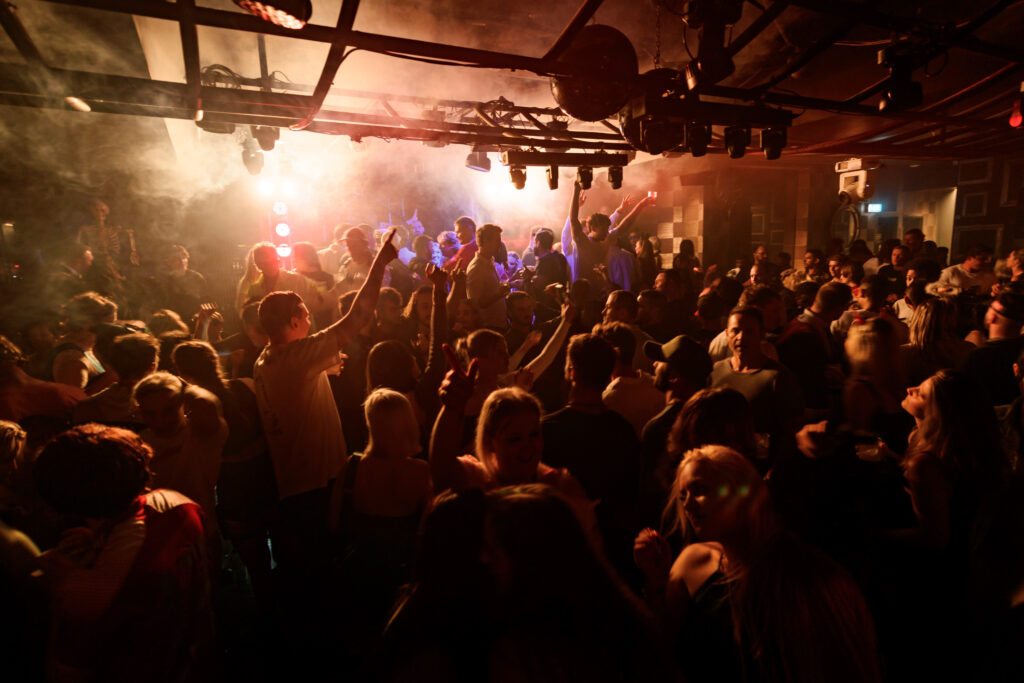Nightlife Evolution: How Technology and Lifestyle Trends Impact Its Decline

Nightlife over the last 15 years has been steadily declining around the world but in particular in the United Kingdom where local legislation, economy, rent fees and changing social norms have led to the steady decline in the number of nightclubs and late night venues that are available in the capital of London. Compared to the 90s and the early 2000s, to now, the amount of late night venues has drastically been reduced.
The first reason for this is the decline of the British economy. People no longer have the funds to go out on a regular occasion and spend vast amounts of money on drinks, entry fees, food and taxis. Right now as of 2023 we are in the middle of a cost of living crisis, where people are struggling to make rent, pay bills and pay for food. This compounds the issue that people can’t afford to go out which leads to a lack of demand for late night venues.
However, this is not new, in late 2000s we had the financial crisis and in 2020 we had covid, which saw the shutdown of venues of every type for nearly two years which crippled multiple businesses and forced others to close completely. The steady rise in alcohol pricing in particular in London has made people question whether it’s worth going out opposed to a night in or preloading before going out. If you’re unaware of what preloading is, it’s basically buying a lot of alcohol and drinking it before heading out to a club or bar.
Changing social norms is also a massive contributing factor for people not heading out anymore. The rise of social media means that people can stay in touch with their friends and loved ones from around the world which is great. However, what this has also led to is the lack of desire of people to see their friends in person on a regular basis.
Another major contributing factor is how people date. The rise of dating apps such as tinder, bumble, hinge, feel’d and many others have led to people not needing to head out and meet other people in order to get dates. People of the opposite sex can now find their desired loved one or their one night fling as easily a swiping left and right which means they do not have to go out in order to find other people.
Another social norm which has changed over the last 20 years is people are more health conscious than they ever have been especially amongst the younger generations. Rises in people becoming vegan and vegetarian as well as people looking after their health more and not drinking as much has led to a steady decline in alcohol sales. Young people now put more emphasis on fitness and healthy living understanding that going out and getting drunk is not what they want anymore preferring earlier nights in. A growing trend is people who are giving up alcohol altogether opting for a sober lifestyle.
What can’t be understated is the rise in the consumption of drugs and the accessibility of drugs worldwide. In Perth Australia, they saw a dramatic increase in the rise in the use of drugs in nightlife. Between 2010 and 2015, the rate of people taking elicit substance drastically rose as its availability and cost became extremely attractive to the younger generations. A common argument made by this generation is that buying alcohol in clubs costs $100-$150 to get drunk whereas a pill for $25 can has the same effect. This means that the bottom line for nightclubs drastically reduces as people are spending less money on the bar because they are taking a illict substances instead.
Local and state governments are also to blame for the decline in nightclubs. Nightlife can bring the best out of people but it can also bring the worst. A minority of cases of drug and drunk infused violence and alcohol related behaviour puts a negative light on a culture which has resulted in fostering communities creating friendships and exploring many types of music. Overbearing and knee jerk legislation has led to many nightclubs being shut down due to being completely unable to trade due to bad legislation. An example of this is the Sydney lockout legislation which has led to the death of Sydney’s nightlife.
Not too long ago the nightclub ‘Fabric’ had to fight for its survival as local legislation would have led to its demise. Local and state governments tend to support developers seeking to create apartments in the space of where nightclubs currently stand over the long term established venues which entertain thousands of people a week and millions of people a year. Night clubs often face stringent regulations and licencing requirements from local governments, noise complaints from nearby residents, and a toxic minority of customers which triggers local governments to make knee jerk decisions and force poor legislation and regulations. Because of these hostile regulations from local governments, this deters potential nightclub owners and investment.
While I did touch on this earlier it cannot be over a stated the effects of Covid 19 and that subsequent lockdowns had on the nightlife industry. Many nightclubs were completely unable to trade even in a virtual setting because of the restrictions. With every one locked away and isolated from each other it meant that nightclubs could not trade because obviously the whole point of a nightclub is a social gathering and if everyone is banned from socially interacting from each other, nightclubs could not operate.
The length of the lockdowns meant that a lot of nightclubs could not operate and we’re not able to maintain their rent. If we are talking about London specifically the rent costs have skyrocketed since covid and while they were already high, now in 2023, they are close to unsustainable.
While it was an EDM boom between 2009 and 2014, that boom has now subsided and electronic music was once the go to reason why you would go to a nightclub. However, this has given way to a broader range of genres and live music experiences. Nightclubs that are heavily invested in specific musical niches have struggled to adapt to changing musical preferences forcing their needs to hold multiple nights that play different types of music and thus diluting the brand of nightclubs
Nightclubs used to only compete with each other but now bars and restaurants have increasingly diversified their offerings to include entertainment options such as live music and DJ sets. Many patrons prefer to have early nights and start earlier and finish early, than to have late nights but still be able to access live music
The decline of nightclubs in recent years is the combination of factors including rising costs, regulatory challenges, changing social habits and the economic impact of the covid 19 pandemic. While the traditional nightclub scene may be on the decline, the nightlife industry has not disappeared entirely instead it’s been evolving to meet the challenging demands and preferences of the modern consumer. Nightclubs that adapt to these changes diversify their offerings and embrace new trends by finding success in the challenging landscape.
What makes Arcadia Agency different to other event agencies is that we have staff who have vast experience in both event planning and production which allows us to attack and event from both the event planning, design and concept side of the event and from the technical production side. If you want to chat about your upcoming project contact us here or follow us on Linked In
